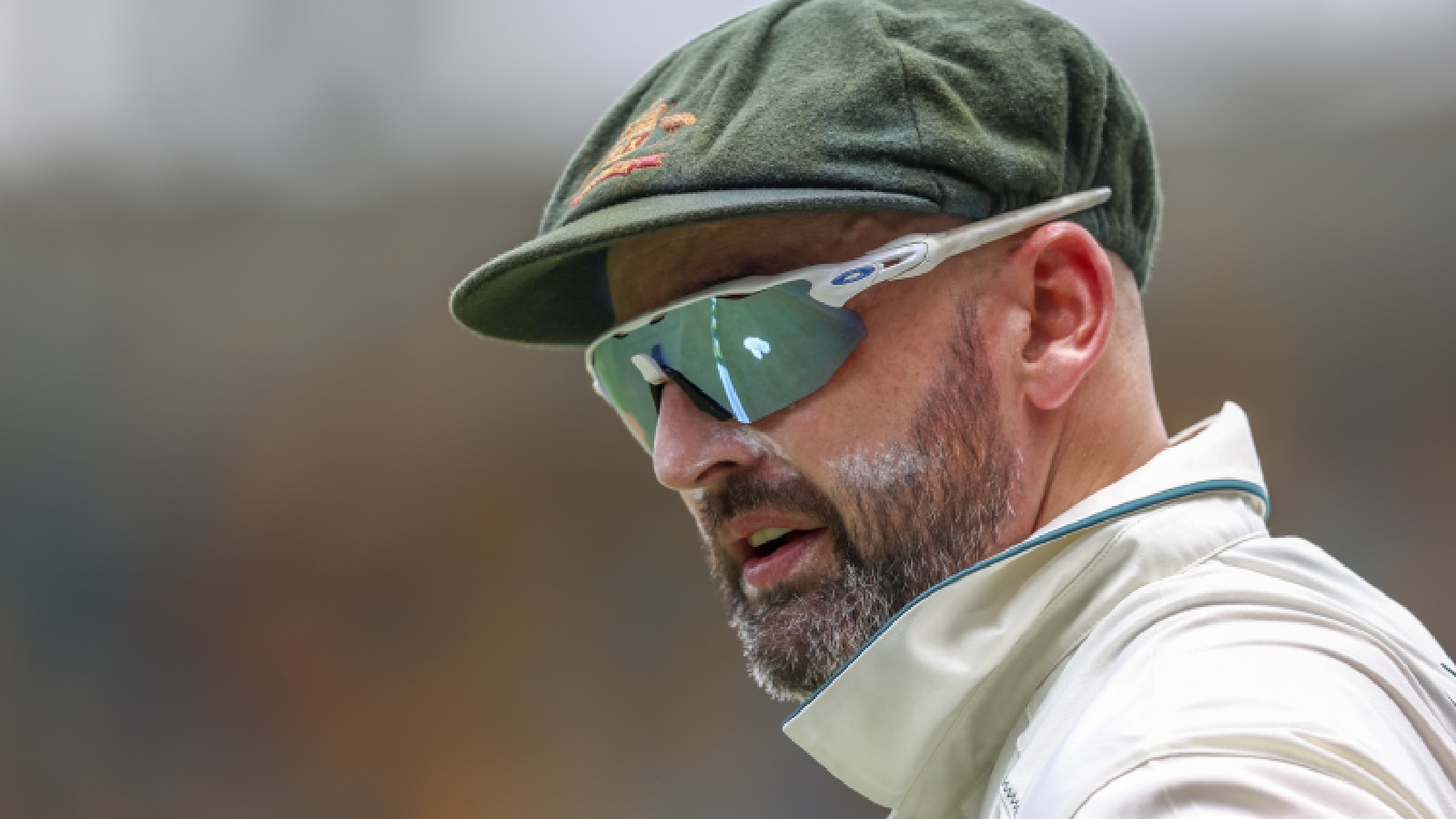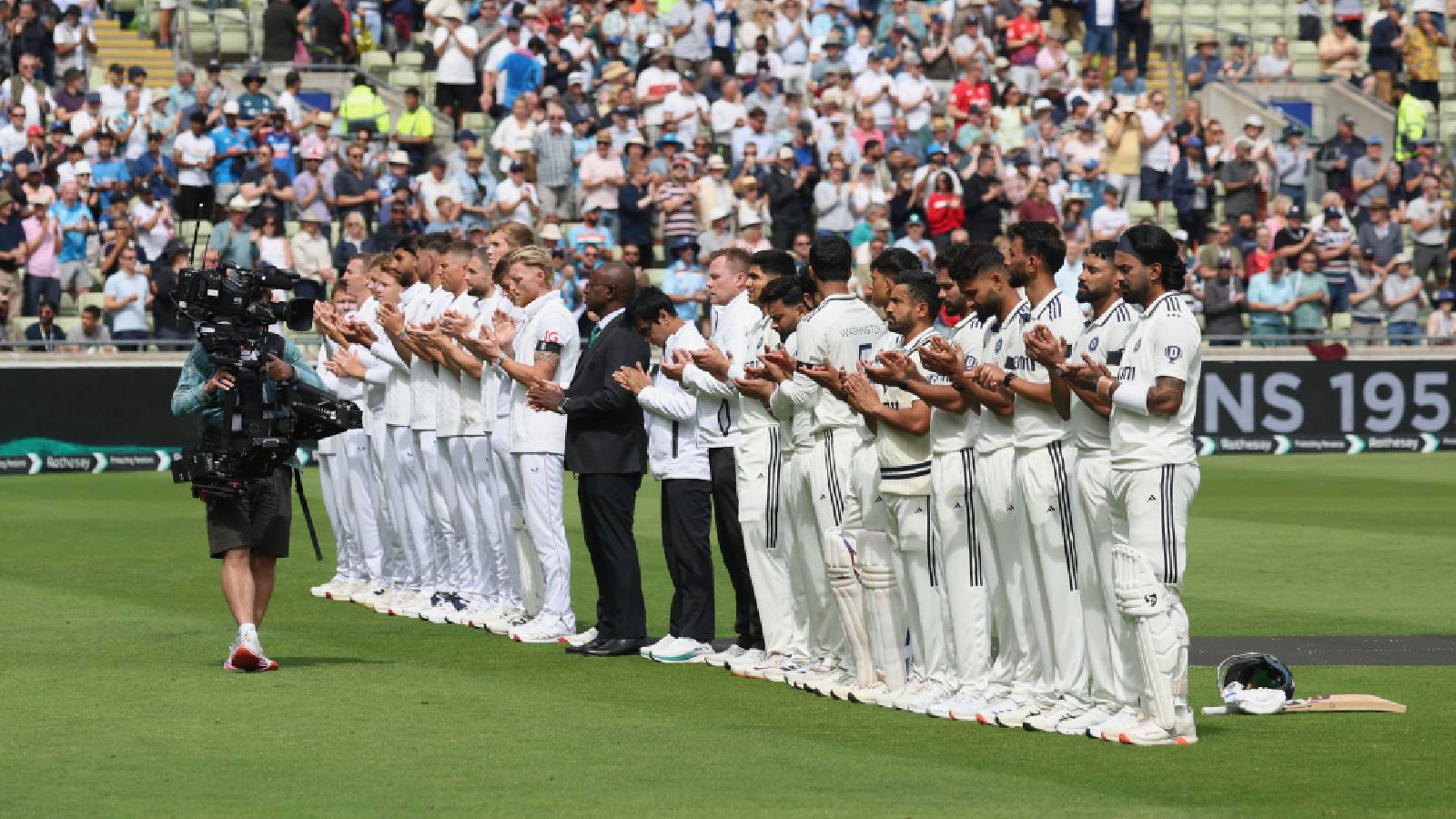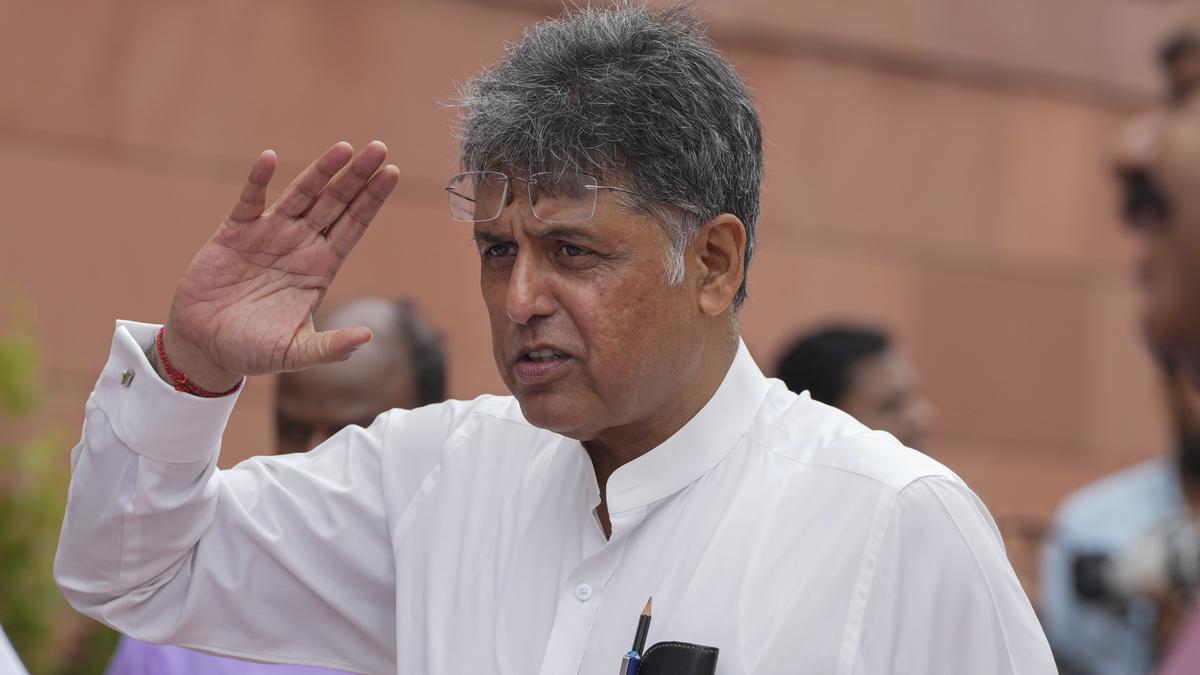ARTICLE AD BOX
There’s a ‘Brit’ at the Russian National Championships. Striking braids, the unmistakable blue-and-white vest and a mischievous smile, he belies the old stereotype of Russians being cold and aloof.
As he prowls on the 100m starting line in a Great Britain uniform, Kirill Chernukhin gives the 2,000-odd spectators a reason to chuckle. The judges take him to one side and ask, ‘Are you crazy?’ They put a tape on the flag and the country’s name before he steps on the track.
“But you can’t tape over the truth,” Chernukhin tells the local media, laughing. “The guys punished the ‘Brit’ anyway. More than 10 of us dominated the ‘Englishman’.”
The ‘Englishman’, to be sure, is Chernukhin himself. “I started in British gear so that every domestic sprinter has a chance to get ahead of a Brit. I’m not in the best shape right now. I can’t run fast. And I wanted the guys to feel this: bam! — they beat the Brit. Cool, right?” he says, according to sports.ru.
It’s a multi-layered joke, one that touches the many emotions athletes here are experiencing. The yearning to test themselves against the world’s best and the helplessness of not being able to do so; the pain of wasting their prime years; the anger of losing fame and money; the waning motivation, the hope that soon they will be reinstated and can challenge the global stars again.
Since November 2015, Russian track and field athletes have not been allowed to compete in international events. At first, when they were sanctioned for state-sponsored doping, they were at least given the chance to participate as neutrals — meaning no Russian flag or anthem at tournaments. But after the invasion of Ukraine, World Athletics imposed a blanket ban.
They are now vigorously tested for doping, claims the Russian Athletics Federation. “We have around 3,000 tests annually and less than 10 anti-doping violations per year,” says secretary general Alexander Djordjadze.
Story continues below this ad
When asked about the sanctions imposed because of the war, the athletes keep mum. “Sport should be away from politics,” says former World Championship silver medallist triple jumper Ekaterina Koneva, repeating a common refrain.
Big impact
The isolation, though, has had a profound impact on established and fledgling careers alike.
Take the case of Polina Knoroz. The pole vaulter, 26, crossed a height of 4.86m on a cold Sunday evening at the Central Stadium in Kazan in front of thousands of screaming fans and with the blockbuster song ‘Matushka’ — ‘Motherland’ — blaring from the speakers.
Polina’s effort is the second-best in the world this year, 5 cm behind USA’s Amanda Pol, and the best in Europe. Yet, when the galaxy of stars descends upon Tokyo for the World Championship in a month, Polina will be at her home in St. Petersburg. When asked if she will miss going pole-to-pole with the best, she says with a smile: “Maybe, they will miss me!”
Story continues below this ad
 Fedor Ivanov, who took up the sport in 2016, has never seen a Russian athlete compete in a major tournament in the country’s colours since he started running. (Photo: Russian Athletics’ Federation)
Fedor Ivanov, who took up the sport in 2016, has never seen a Russian athlete compete in a major tournament in the country’s colours since he started running. (Photo: Russian Athletics’ Federation)
Like many others, Polina says she is driven by the desire to ‘prove that I can perform no worse than the global stars’.
“I do not have the opportunity to perform on the international stage but in Russia, I can produce a world-class result,” she says.
During the four-day event, Polina was one of the three Russians who met World Championship qualification standards. In women’s 400m, Polina Tkalich ran 50.52 seconds, faster than the mark of 50.75s, while Fedor Ivanov — who left it all on the track, literally, and had to be taken off on a wheelchair — completed the men’s 400m hurdles in 47.94 seconds, a Russian record (Worlds Qualification mark: 48.50s).
Ivanov took up running in 2016, when he was 12 years old, in his hometown of Norilsk, north of the Arctic Circle. He belongs to a generation of Russians that has never seen their athletes compete in the country’s colours since taking up the sport.
Story continues below this ad
“I feel a bit disappointed that I am not having a chance to compete internationally,” he says. “At the Diamond League, I would be among the winners, for sure.”
He proudly wears the logo of his club CSKA, under the Russian Ministry of Defence. Dozens of athletes from the club have been barred from competing in any sport by the International Olympic Committee, which has mandated that athletes seeking to compete without Russia’s flag must not belong to sports clubs linked to security agencies.
Fingers crossed
Ivanov says he trains every day in the hope that one day, he will be allowed to represent his country.
London Olympics silver medallist long jumper Yelena Sokolova calls it a ‘tragedy’ that an entire generation of Russian athletes don’t know what it’s like to compete for the flag. “At the same time, they don’t know what they have lost. But I understand and it’s a tragedy,” she says.
Story continues below this ad
She isn’t the only one whose career suffered after the sanctions came into effect. Sergey Shubhenkov, a former world champion hurdler, says that in the first year of restrictions and competing as a neutral, he wondered why he was being punished.
“It was weird,” he says. “The attention on Russian athletes was a lot more. But by 2018, everything was okay, we got used to it and it was like nothing happened. I was doing everything I needed to. I was allowed to compete, win, earn money, stand on the podium…”
Everything changed after the blanket ban following the Ukraine invasion. “When the companies left Russia, a lot of sponsorships just ended. I lost most of my income, but am still doing fine. You can earn in Russia practising sports without foreign sponsorships, pretty much like any other occupation,” Shubhenkov says.
A lawyer by qualification, Shubhenkov, now in the twilight of his career, says he wouldn’t earn the same amount of money in ‘three-four years of working’ as he would in one year of sport.
Story continues below this ad
The 34-year-old has been delaying his retirement in the hope that the sanctions will be lifted and he can bid farewell after competing one last time on an international platform.
Here, they secretly hope that Friday’s summit between the presidents of Russia and the USA leads to a solution that will eventually lead to their reinstatement.
Until that happens, they appeal.
“Sport unites,” says Polina. “Don’t forget us.”
(The reporter was in Kazan on the invitation of the Russian Athletics Federation)



.png)
.png)
.png)

























 English (US) ·
English (US) ·